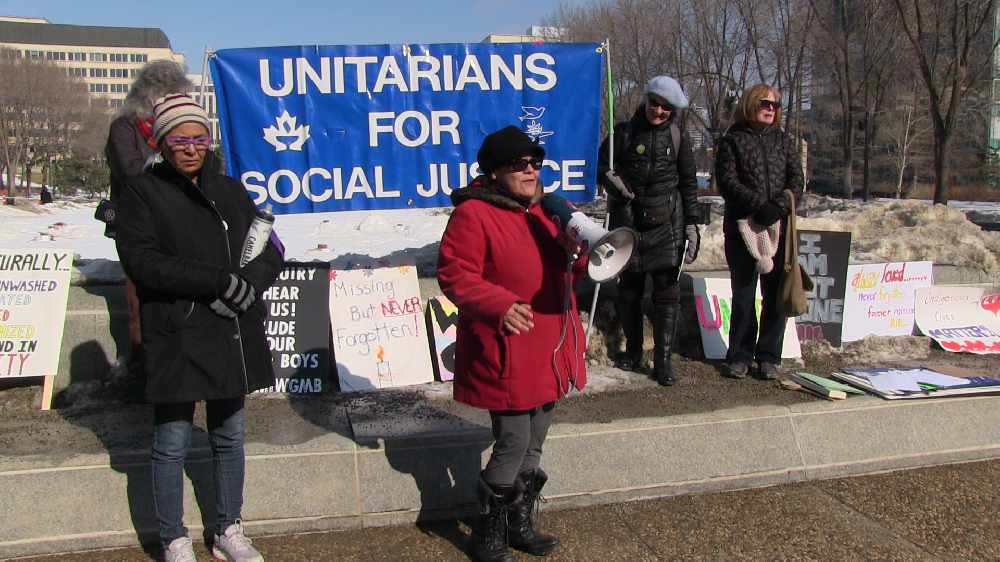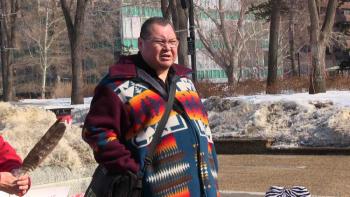Image Caption
Summary
By Paula E. Kirman
Windspeaker.com Contributor
Sixties Scoop survivors gathered at the Alberta Legislature in Edmonton on March 16 in solidarity with fellow First Nations, Métis and Inuit survivors in nine major cities across the country. The purpose of the Sixties Scoop Survivor Rally was to speak out against the injustices perpetrated against the survivors, their communities, and families in Canada.
These rallies were called by the National Indigenous Survivors of Child Welfare Network and marked the largest nationwide mobilization of Sixties Scoop survivors to date.
In a national media release, Network Coordinator Colleen Cardinal said “The 60s Scoop has directly contributed to homelessness and incarceration, as well as the deaths and disappearances of Indigenous women, girls, trans, Two Spirit people, and men. The Network is committed to supporting the voices of all Sixties Scoop survivors. This means survivors incarcerated in Canada’s prison system, survivors who are homeless, sex working, living with HIV/AIDS, and those struggling with addiction, PTSD and mental health issues from unresolved trauma. We will not forget about them and we will not let Canada forget about them.”
Edmonton's rally was organized by Judith Ann Gale, a survivor. Born Judy Lepine in Fort Smith, N.W.T., Gale was adopted out to a family in Montreal where her name was changed, she learned English and French, and had her traditional language “beaten out of her.”

Judith Gale addresses the crowd.
Gale said the purpose of the rally is “to stand in solidarity with our brothers and sisters who have been affected by the Sixties Scoop and the intergenerational trauma caused by the residential schools, and by the government’s inability to recognize us as a sovereign nation, and give us that respect.”
Papaschase Chief Calvin Bruneau also spoke at the rally.
“We have to learn from the residential school experience. You can't just throw money at the situation and expect it to go away,” he said. “People are still hurting and dealing with a lot of issues like addictions and abuse in their background. There was nothing done for residential school survivors in terms of their healing. You need to push not only for compensation but also something to help the people heal.”

